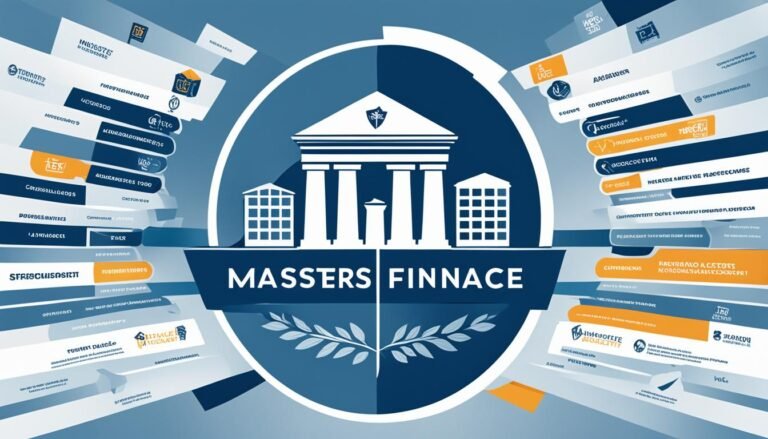Best masters in creative writing
Did you know that the demand for advanced writing skills is soaring? With more and more industries recognizing the power of effective storytelling, now is the perfect time to pursue a career in creative writing. Whether you dream of becoming a published author, a screenwriter, or a marketing wordsmith, a master’s degree in creative writing can provide the expertise and credentials you need to stand out in the competitive world of words.
But with countless programs available, how do you choose the right one for you? To help you find the best masters in creative writing, we have compiled a list of the top-rated programs that offer advanced degrees in this field. From hybrid programs that combine online and on-campus learning to low-residency options that provide flexibility, these programs will empower you to enhance your writing skills and unlock your creative potential. Let’s dive in and explore the exciting opportunities that await you!
Key Takeaways:
- There is a growing demand for advanced writing skills, making it an ideal time to pursue a career in creative writing.
- A master’s degree in creative writing can open doors to a wide range of career opportunities in industries such as publishing, advertising, and entertainment.
- Choosing the right MFA program is crucial, considering factors such as program format, specialization options, accreditation, and funding opportunities.
- The programs listed in this article are highly-rated and offer various formats, including hybrid and low-residency options.
- By selecting the best masters in creative writing program for your needs, you can develop your writing skills, connect with experienced faculty, and pursue your writing aspirations.
Western New England University – Hybrid MFA in Fiction
Looking to enhance your fiction writing skills in a hybrid learning environment? Western New England University offers a highly-regarded low-residency program in creative writing. As a top creative writing school, Western New England University provides aspiring writers with the opportunity to pursue their passion while receiving individualized attention and guidance from experienced published authors.
With a focus on fiction, the Hybrid MFA in Fiction program covers all aspects of the craft through a variety of engaging and immersive learning experiences. Craft classes, individual conferences, manuscript consultations, special topics courses, and workshops are just a few of the elements that make up this comprehensive program.
One of the highlights of the program is the week-long residencies where students can fully immerse themselves in discussions, lectures, panels, readings and workshops. These residencies can be completed either on-campus in Springfield, Massachusetts or in the beautiful surroundings of the Berkshires or even in Dublin, Ireland, providing a unique and enriching experience.
The program boasts a low student-faculty ratio of 5:1, ensuring that students receive individualized attention and mentorship from accomplished authors specializing in various genres. This personalized approach allows for tailored guidance and feedback on your writing, helping you to grow and develop as a fiction writer.
Key Courses in the Program
- Fiction Workshop
- The Craft of Fiction
By combining rigorous academic study with real-world writing experiences, this hybrid MFA in Fiction program from Western New England University equips students with the skills and knowledge needed to succeed in the ever-evolving world of creative writing.
| Program Features | Details |
|---|---|
| Program Type | Low-residency, hybrid |
| Specialization | Fiction |
| Residency Options | On-campus (Springfield, Massachusetts) or Berkshires or Dublin, Ireland |
| Student-Faculty Ratio | 5:1 |
| Key Courses |
|
Lesley University – Low-Residency MFA in Creative Writing
Lesley University offers a unique low-residency MFA in Creative Writing program that allows you to explore new boundaries in your craft. This program is designed for aspiring writers who seek to enhance their skills and pursue their passion in various genres. Through a combination of intensive residencies and online coursework, Lesley University provides a flexible and immersive learning experience for creative writing enthusiasts.
The program requires a total of 49 credits for completion and offers specializations in fiction, graphic novels and comics, non-fiction, poetry, writing for stage and screen, and writing for young people. This allows you to focus your studies on the specific area of creative writing that interests you the most, whether it’s crafting compelling narratives, exploring visual storytelling, or captivating audiences through poetry or screenplays.
Throughout the program, you will have the opportunity to work with award-winning writers and faculty members who are experts in their fields. This not only provides valuable mentorship but also exposes you to diverse perspectives and writing styles, fostering interdisciplinary learning and exploration.
Lesley University also offers unique opportunities for residencies, including a 12-day residency in Wales. These residencies provide an immersive environment where you can engage with fellow writers, attend workshops, and receive feedback on your work. The program also incorporates other disciplines such as art and design, education, psychology, and visual arts, allowing you to draw inspiration from different creative fields and broaden your horizons.
Graduates of Lesley University’s Low-Residency MFA in Creative Writing program have gone on to pursue successful careers as authors, playwrights, poets, and screenwriters. The program equips you with the necessary skills, knowledge, and network to thrive in the world of creative writing, providing a solid foundation for your future endeavors.
“Lesley University provided me with a transformative experience that deepened my understanding of the craft and allowed me to grow as a writer. The low-residency format allowed me to balance my writing goals with my personal and professional commitments.” – Sarah, MFA in Creative Writing Graduate
Program Highlights:
- Hybrid format combining intensive residencies and online coursework
- Specializations in fiction, graphic novels and comics, non-fiction, poetry, writing for stage and screen, and writing for young people
- Working with award-winning writers and faculty members
- Residency opportunities in Wales
- Interdisciplinary learning through the incorporation of other creative disciplines
Admission Requirements:
| Requirements | Details |
|---|---|
| Bachelor’s degree | Applicants must hold a bachelor’s degree from an accredited institution |
| Writing Sample | A sample of your creative writing work, showcasing your abilities and potential |
| Letters of Recommendation | Letters from individuals who can speak to your writing skills and potential |
| Statement of Purpose | An essay outlining your writing goals, interests, and why you are interested in the program |
| Transcripts | Official transcripts from all previously attended institutions |
Embark on a transformative journey in your creative writing career with Lesley University’s Low-Residency MFA in Creative Writing program. Explore new horizons, refine your skills, and unleash your creative potential in a supportive and dynamic learning environment.
Spalding University – MFA in Writing with Six Concentrations
Spalding University offers a highly-regarded MFA in Writing program with six concentrations to choose from, including creative non-fiction, fiction, playwriting, poetry, screenwriting, and writing for children and young adults. This low-residency program provides a flexible and immersive learning experience for aspiring writers.
The program consists of 65 credits and is designed to cater to the unique needs and interests of each student. It includes five 10-day residencies where you can attend lectures, readings, and workshops. These residencies take place in Louisville, Kentucky, during spring and fall, and internationally during the summer, offering you a diverse and enriching experience.
At Spalding University, you will have the opportunity to work closely with experienced faculty members who are accomplished writers in their respective fields. They will provide personalized guidance and feedback on your writing, helping you refine and develop your craft.
Throughout the program, you will engage in independent study to further explore your chosen concentration. This allows you to tailor your learning experience and delve deeper into your specific area of interest. You will also have the opportunity to collaborate with fellow writers and participate in workshops, fostering a supportive and vibrant writing community.
Spalding University’s MFA in Writing program offers a unique blend of academic rigor, affordability, and flexibility. With six concentrations to choose from, you can hone your skills in the genre that speaks to you the most. Whether you aspire to be a creative non-fiction writer, playwright, poet, screenwriter, or children’s book author, this program provides the knowledge and support you need to succeed.
Upon completion of the program, you will work on a thesis project during a graduation residency, showcasing your growth and achievements as a writer. This culminating experience allows you to reflect on your journey and present a body of work that represents your unique voice and vision.
Spalding University’s MFA in Writing program not only prepares you for a career in writing but also fosters connections that can open doors to various professional opportunities. The program provides ongoing support and mentorship to alumni, ensuring you continue to thrive in the writing industry even after graduation.
Concentrations Offered by Spalding University’s MFA in Writing Program
| Concentration | Description |
|---|---|
| Creative Non-Fiction | Develop skills in crafting compelling and thought-provoking non-fiction narratives. |
| Fiction | Explore the elements of storytelling and create captivating works of fiction. |
| Playwriting | Learn the art of writing for the stage and develop engaging and impactful plays. |
| Poetry | Express your thoughts and emotions through the beauty and power of poetry. |
| Screenwriting | Master the craft of writing for film and television and bring stories to life on the screen. |
| Writing for Children and Young Adults | Create captivating stories and engage young readers through the art of children’s literature. |
Whether you have a passion for creative non-fiction, fiction, playwriting, poetry, screenwriting, or writing for children and young adults, Spalding University’s MFA in Writing program offers the guidance, resources, and community you need to thrive as a writer.
Queens University of Charlotte – Hybrid MFA in Creative Writing
Queens University of Charlotte offers a hybrid MFA in Creative Writing program that combines the flexibility of online learning with the benefits of in-person residencies. With a focus on publishing and editing, this program provides comprehensive training in various genres of writing, including creative non-fiction, fiction, poetry, and writing for stage and screen.
The program requires the completion of 52 credits, which can be achieved through a combination of online coursework, residencies, workshops, and a capstone project. During the residencies, students have the opportunity to engage in collaborative learning, participate in workshops, seminars, and readings, and network with fellow writers and industry professionals.
Residencies can be completed either on-campus in Charlotte, North Carolina, or internationally in vibrant cities such as Buenos Aires, Argentina; Rio de Janeiro, Brazil; or Santiago, Chile. This international exposure allows students to gain a global perspective on writing and storytelling, enriching their creative abilities.
Graduates of the program have pursued successful careers in various fields, including writing, editing, publishing, and teaching. The program equips students with the necessary skills and knowledge to excel in the ever-evolving landscape of the writing industry and prepares them to make a meaningful impact in the world of literature and creative arts.
Table: Sample Courses Offered in Queens University of Charlotte’s Hybrid MFA in Creative Writing Program
| Course | Genre |
|---|---|
| Fiction Workshop | Fiction |
| Poetry Workshop | Poetry |
| Creative Non-Fiction Workshop | Creative Non-Fiction |
| Writing for Stage and Screen Workshop | Writing for Stage and Screen |
Through these courses and various electives, students gain a comprehensive understanding of their chosen genre and develop advanced writing skills. The program’s emphasis on practical application prepares students for the challenges and opportunities that await them in their writing careers.
Harvard University – Master of Liberal Arts in Creative Writing and Literature
Harvard University offers a unique Master of Liberal Arts program in Creative Writing and Literature through its Extension School. This hybrid program consists of 48 credits and offers a choice between a capstone or thesis project. While not specifically an MFA in creative writing, the program incorporates elements of creative writing and literature. The program is designed for working professionals and offers flexibility in terms of course schedule and format. Students have the opportunity to learn from renowned faculty and engage in workshops, conferences, and guest speaker sessions. This program provides a valuable credential for those looking to enhance their writing and literary analysis skills.
Program Overview
The Master of Liberal Arts in Creative Writing and Literature program at Harvard University offers a comprehensive curriculum that combines the study of creative writing with a deep exploration of literature. Students have the flexibility to choose from a wide range of courses, including fiction, poetry, non-fiction, and screenwriting, allowing them to develop their writing skills across multiple genres. The program also incorporates critical analysis and literary theory, providing a well-rounded education in the field.
Faculty
“The faculty at Harvard University’s Master of Liberal Arts program in Creative Writing and Literature is composed of distinguished writers and scholars who bring a wealth of expertise and experience to the classroom. With their guidance and mentorship, students are able to refine their writing techniques, expand their knowledge of literature, and cultivate their unique voices as writers.”
Program Highlights
- Flexible course schedule and format
- Engaging workshops, conferences, and guest speaker sessions
- Choice between a capstone or thesis project
- Opportunity to learn from renowned faculty
- Integration of creative writing and literary analysis
Admission Requirements
- Bachelor’s degree from an accredited institution
- Statement of purpose
- Writing samples
- Letters of recommendation
- Official transcripts
Career Opportunities
“Graduates of Harvard University’s Master of Liberal Arts program in Creative Writing and Literature are well-equipped for careers in various fields, including publishing, journalism, editing, academia, and more. The program’s emphasis on critical thinking, writing proficiency, and literary analysis provides graduates with a strong foundation for success in the writing and literary world.”
Table:
| Pros | Cons |
|---|---|
| Flexible course schedule and format | Not a dedicated MFA program |
| Access to renowned faculty | Competitive admission process |
| Integration of creative writing and literature | Higher cost compared to some programs |
| Opportunity for capstone or thesis project | Notable time commitment |
Key Considerations for Choosing an MFA Program
When embarking on the journey of choosing an MFA program in creative writing, it is essential to carefully consider several key factors. These factors will greatly impact your overall experience and the opportunities that await you upon completion. Here are the crucial elements to keep in mind:
1. Cost of Living
The cost of living in the program’s location can have a significant impact on your budget. Some cities or towns may have a higher cost of living, which can drive up expenses for accommodation, transportation, and daily necessities. It’s important to research and calculate your expenses in different locations to determine what is feasible for you. By carefully considering the cost of living, you can better plan your finances and ensure that it aligns with your budget.
2. Program Duration
The duration of an MFA program can vary from one institution to another. Some programs are completed in two years, while others may have a longer duration. It’s crucial to evaluate the program’s length and consider how it fits into your personal and professional goals. If you prefer a more intensive and accelerated program, a shorter duration may be most suitable. On the other hand, if you prefer a more well-paced and thorough program, a longer duration may be preferred. Consider your preferred learning style and commitment level when deciding on the program duration.
3. Program Accreditation
Program accreditation verifies the quality and standards of an MFA program. It ensures that the program meets specific criteria and that your degree will be recognized by other institutions and employers. Accreditation provides an added level of assurance and credibility to your education. When considering MFA programs, look for institutions that hold reputable programmatic accreditation from organizations such as the Higher Learning Commission (HLC), Southern Association of Colleges and Schools Commission on Colleges (SACSCOC), or New England Commission of Higher Education (NECHE). This will ensure that you receive a high-quality education and maximize your future opportunities.
4. Funding Opportunities
Financing your MFA program can be a significant concern. Fortunately, many programs offer funding opportunities such as scholarships, grants, and fellowships. These financial resources can help alleviate the financial burden associated with tuition fees and living expenses. It’s advisable to research the funding opportunities available at different institutions and inquire about their application processes and eligibility criteria. Taking advantage of funding opportunities can make your MFA program more financially feasible and allow you to focus on your studies without undue financial stress.
In conclusion, selecting the right MFA program in creative writing requires careful consideration of various factors. By assessing the cost of living, program duration, program accreditation, and funding opportunities, you can make an informed decision that aligns with your goals and aspirations. Remember to prioritize these key considerations and conduct thorough research while choosing your MFA program.
Career Opportunities for MFA Graduates
An MFA in Creative Writing opens up a wide range of career opportunities for graduates. Writers can pursue careers in various industries, including publishing, journalism, advertising, and entertainment. They can also choose to work as freelance writers or self-publish their own books. Editors are essential in the publishing industry, ensuring that written content is high-quality and error-free. Creative writing MFA graduates can also seek positions as college instructors, teaching courses in their specialized genres. Additionally, MFA graduates can find opportunities as public relations specialists and marketing managers, using their strong communication and critical thinking skills to promote products and build brands.
With their expertise in crafting compelling narratives and communicating effectively, MFA graduates are well-equipped for various roles in the professional world. Here are some potential career paths for MFA graduates:
| Career Opportunities | Description |
|---|---|
| Writer | Work as a professional writer in industries such as publishing, journalism, advertising, or entertainment. Write articles, stories, scripts, or marketing content. |
| Editor | Ensure the quality and clarity of written content by editing and proofreading manuscripts, articles, or publications. Collaborate with writers to refine their work. |
| College Instructor | Teach creative writing courses at colleges and universities, sharing your expertise and passion for writing with aspiring students. |
| Public Relations Specialist | Create compelling written content for media releases, press kits, and promotional materials. Build relationships with the media and manage a company’s public image. |
| Marketing Manager | Develop and implement marketing strategies, campaigns, and content. Craft persuasive copy and tell engaging stories to attract and engage customers. |
These are just a few examples of the career paths available to MFA graduates. With their versatile skills and creativity, MFA graduates can forge their own unique paths in the professional world.
Programmatic Accreditation for MFA Programs
When choosing an MFA program, it is important to consider programmatic accreditation. Accreditation ensures that the program meets certain standards and that your degree will be recognized by employers and other institutions. While national and regional accreditation apply to the university as a whole, programmatic accreditation specifically evaluates the quality and rigor of the MFA program itself.
Programmatic accreditation provides assurance that the program has undergone a rigorous evaluation process conducted by an external accrediting body. It validates the program’s curriculum, faculty qualifications, student support services, and educational outcomes. Accredited programs demonstrate a commitment to continuous improvement and adhere to industry standards.
When researching MFA programs, it is crucial to look for programs that hold accreditation from reputable accrediting bodies. Some well-known accrediting bodies for MFA programs include:
- The Higher Learning Commission (HLC)
- Southern Association of Colleges and Schools Commission on Colleges (SACSCOC)
- New England Commission of Higher Education (NECHE)
These accrediting bodies assess the quality of education provided by the program and ensure that it meets recognized standards. Accreditation from these organizations is an important factor to consider when choosing an MFA program, as it guarantees the program’s credibility and enhances the value of your degree.
By selecting an accredited MFA program, you can have confidence in the program’s quality and its alignment with industry standards. Your degree will carry more weight in the job market and open doors to various career opportunities in the field of creative writing.
Conclusion
Pursuing an MFA in Creative Writing can provide aspiring writers with valuable skills, connections, and opportunities for career advancement. The programs highlighted in this article offer a range of options, including low-residency and hybrid formats, specialization in specific genres, and opportunities for interdisciplinary learning. When choosing an MFA program, it is important to consider factors such as cost, program duration, accreditation, and funding opportunities. By finding the best program for your needs, you can enhance your writing abilities and embark on a fulfilling career in creative writing.
FAQ
What are the best masters in creative writing programs available?
Some of the top creative writing programs include Western New England University, Lesley University, Spalding University, Queens University of Charlotte, and Harvard University.
What is the Western New England University MFA in Fiction program like?
The Western New England University MFA in Fiction program is a hybrid low-residency program that focuses on all aspects of fiction through craft classes, individual conferences, manuscript consultations, special topics courses, and workshops.
What does the Lesley University Low-Residency MFA in Creative Writing offer?
The Lesley University Low-Residency MFA in Creative Writing program offers specializations in fiction, graphic novels and comics, non-fiction, poetry, writing for stage and screen, and writing for young people, and incorporates interdisciplinary learning and exploration.
What concentrations are available in the Spalding University MFA in Writing program?
The Spalding University MFA in Writing program offers concentrations in creative non-fiction, fiction, playwriting, poetry, screenwriting, and writing for children and young adults.
What specialization options are available in the Queens University of Charlotte MFA in Creative Writing program?
The Queens University of Charlotte MFA in Creative Writing program offers specializations in creative non-fiction, fiction, poetry, and writing for stage and screen.
What is the Harvard University Master of Liberal Arts in Creative Writing and Literature program like?
The Harvard University Master of Liberal Arts in Creative Writing and Literature program is a hybrid degree program designed for working professionals, offering flexibility in course schedule and format.
What factors should I consider when choosing an MFA program?
When choosing an MFA program, it is important to consider factors such as the cost of living in the program’s location, program duration, program accreditation, and funding opportunities.
What career opportunities are available for MFA graduates?
MFA graduates can pursue careers as writers, editors, college instructors, public relations specialists, and marketing managers, among other options.
What is programmatic accreditation for MFA programs?
Programmatic accreditation specifically evaluates the quality and rigor of the MFA program itself, ensuring that it meets certain standards and that the degree will be recognized by employers and other institutions.
Why should I pursue an MFA in Creative Writing?
Pursuing an MFA in Creative Writing can provide aspiring writers with valuable skills, connections, and opportunities for career advancement.







